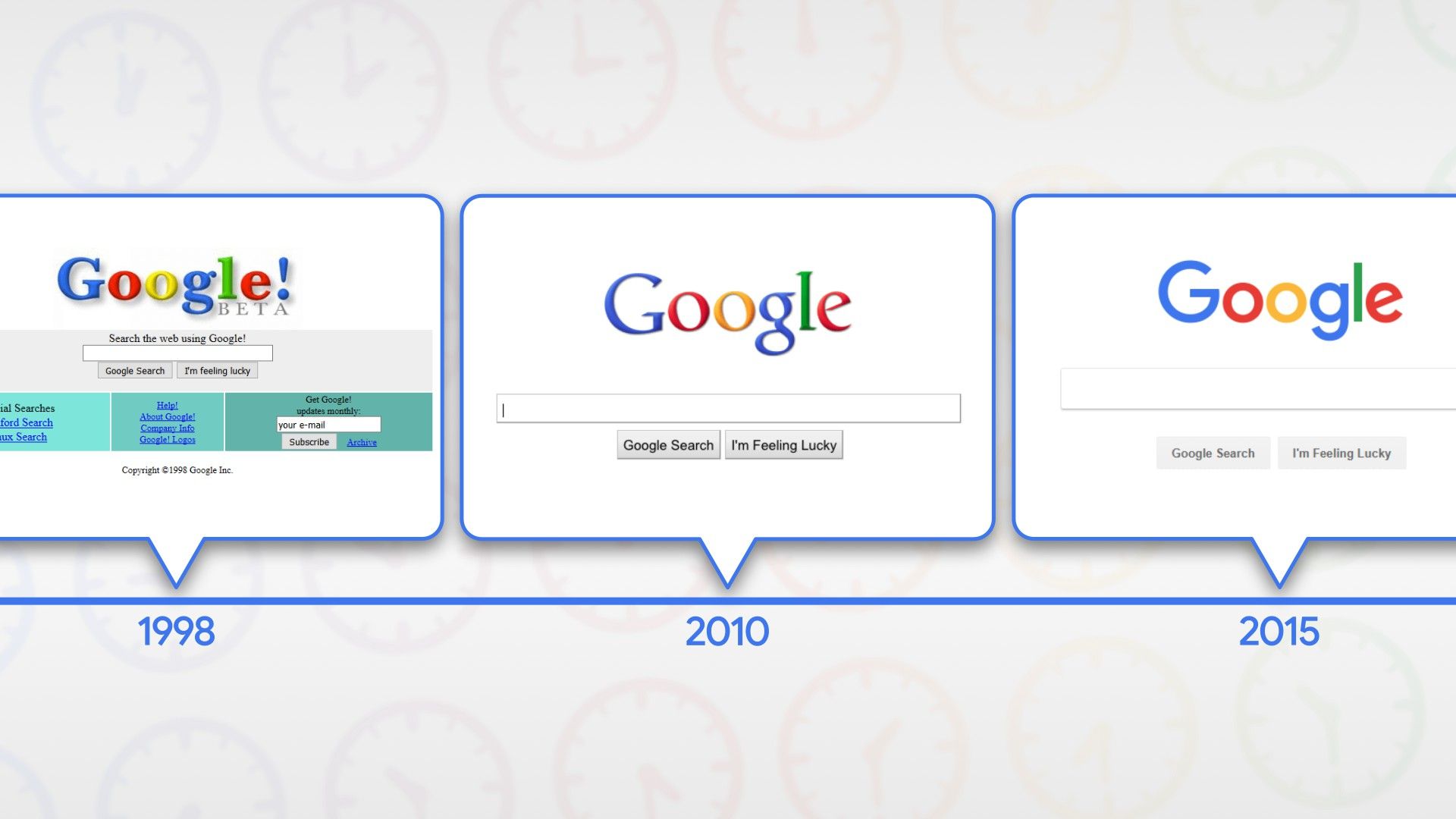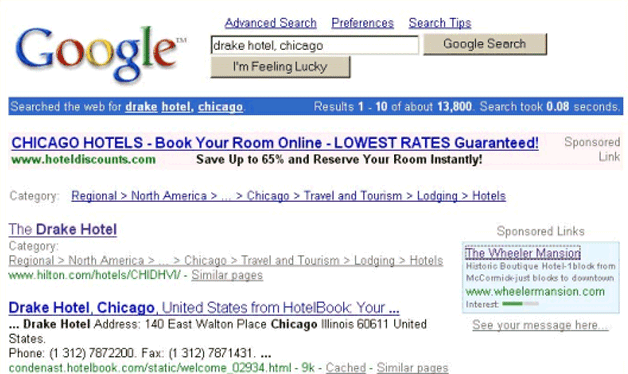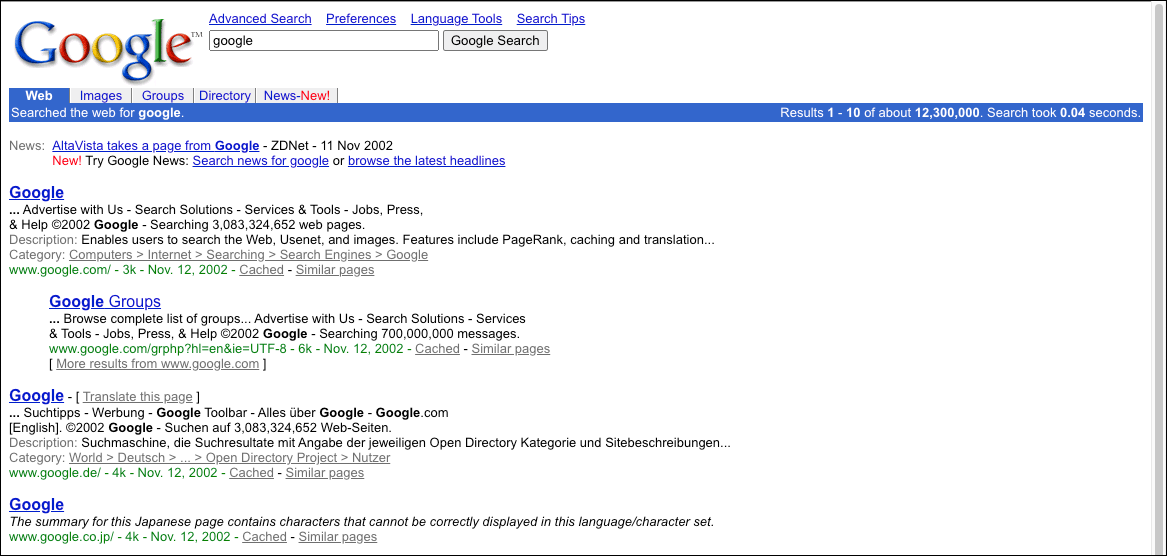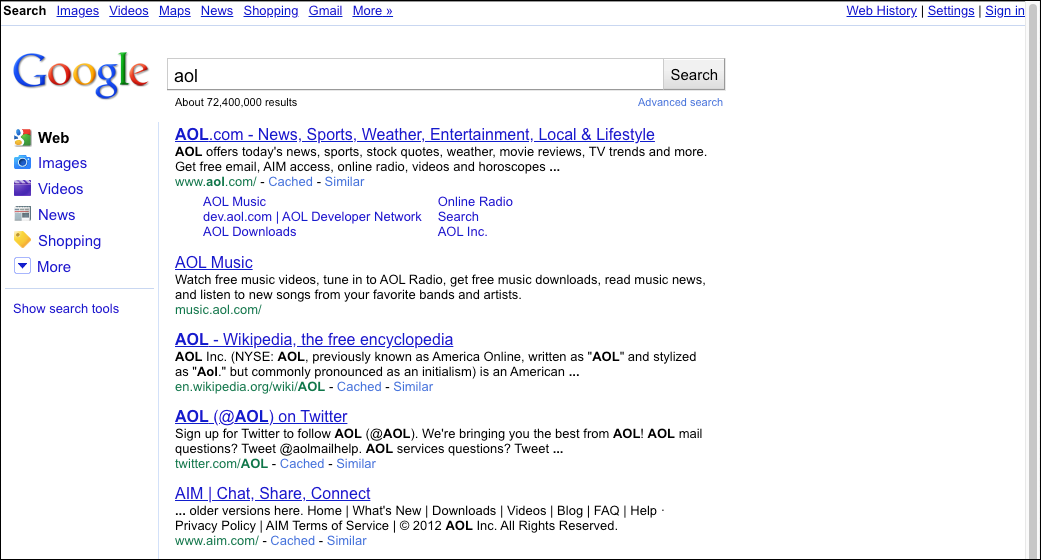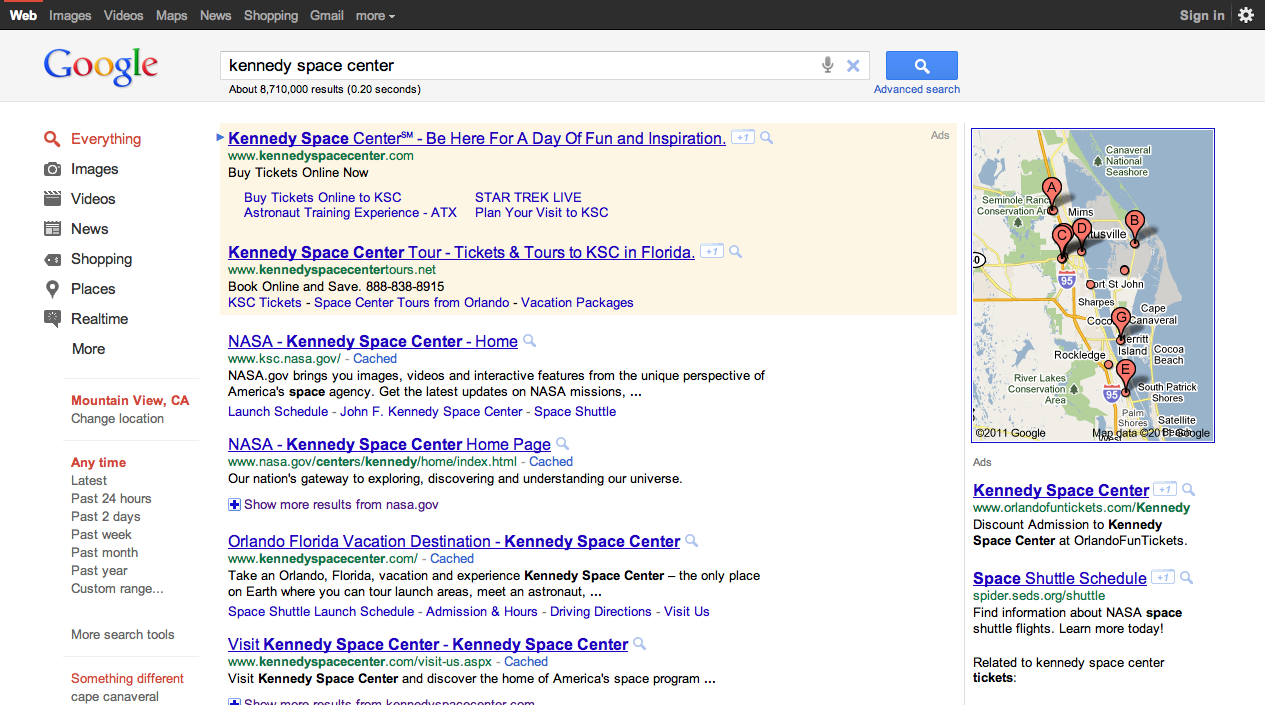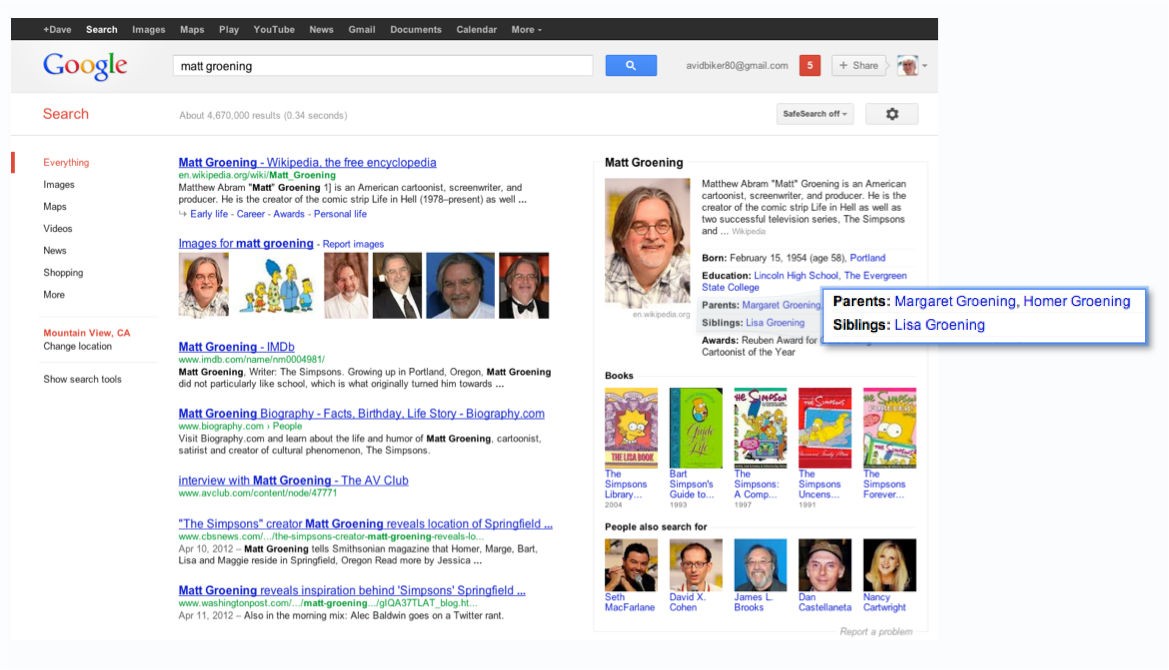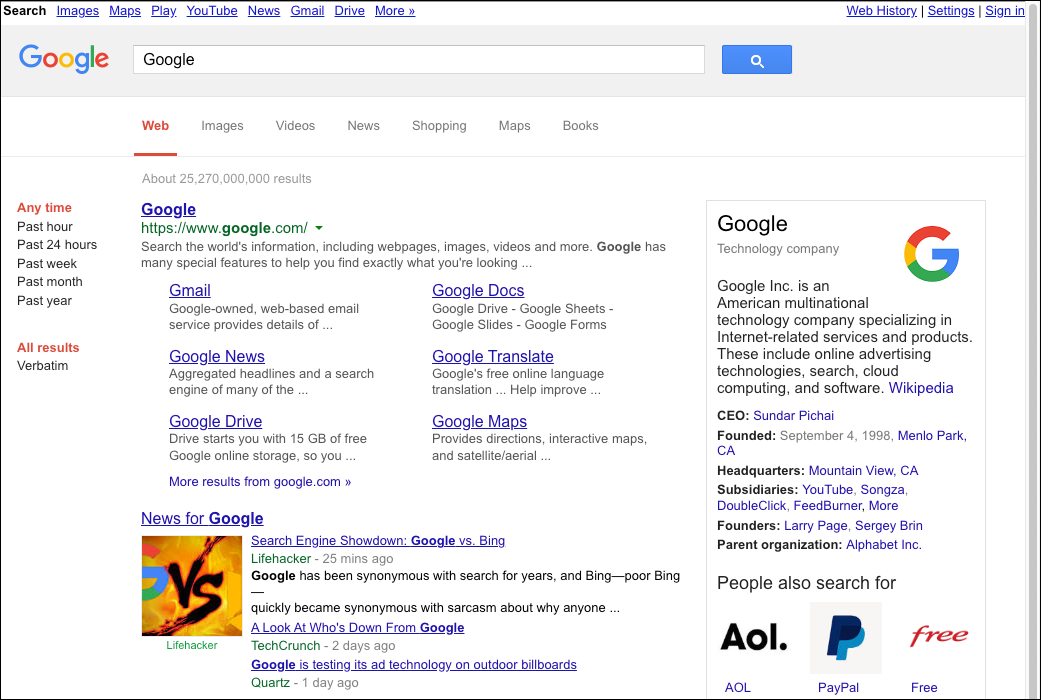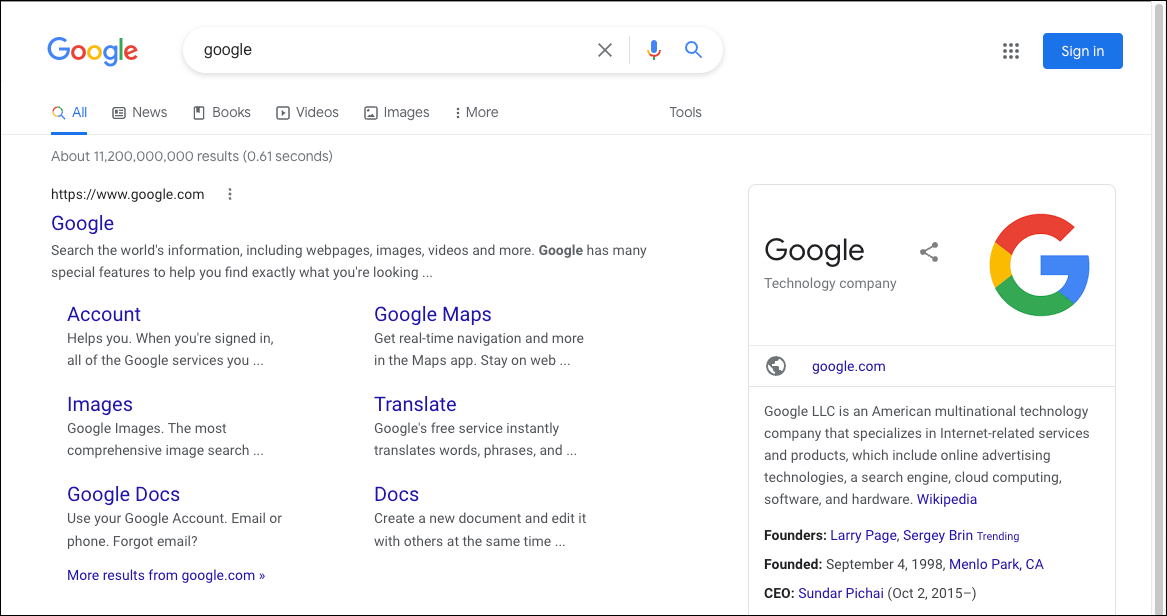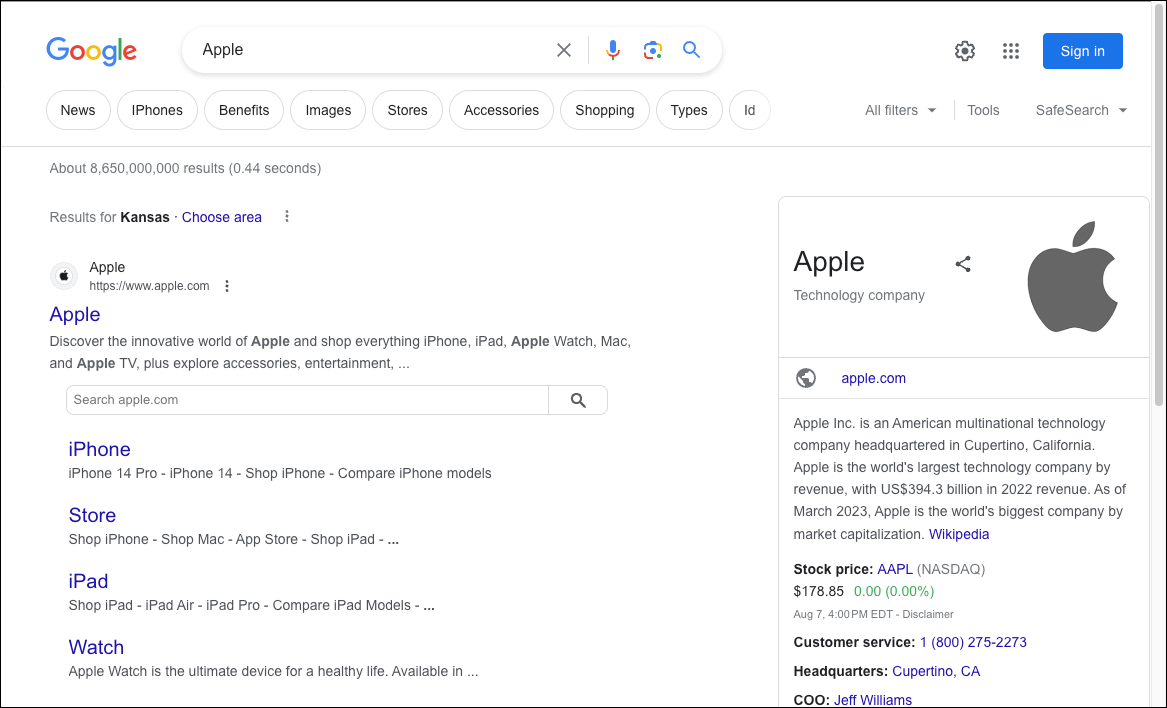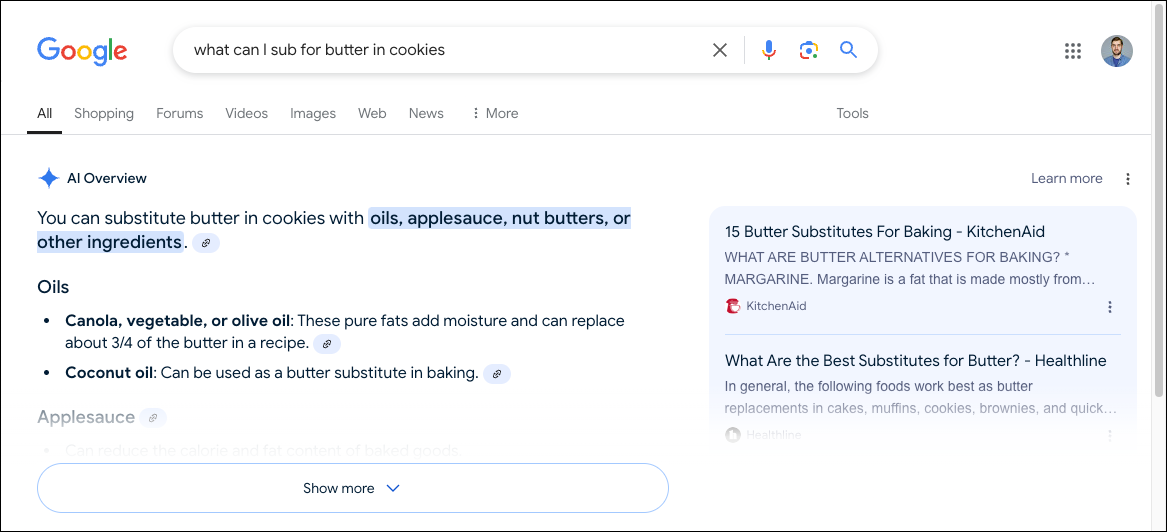Google Search has been around for over 25 years, and public opinion on it has changed a lot in that time. What started as a barebones search engine optimized for speed has evolved into a bit of a cluttered, AI-infused mess. How did we get here?
1998: Google! Launches
The google.com domain was registered in 1997, but the company considers September 1998 as the official launch of Google as we know it today. While it’s easy to find images of what the home page looked like back then, it’s apparently impossible to see the actual search results page.
The best glimpse we can get is by doing a Google search for “Google in 1998.” This brings up a search results page with a theme meant to mimic the original Google, complete with a Yahoo-esque exclamation point in the logo. One of the key features of Google for a long time was present from the beginning. The top of the page listed the number of results and how long it took to perform the search.
2000: Google Gets Ads
It’s long been known that Google’s cash cow is ads, and that’s been true for nearly as long as Google existed. Ads first appeared on the search results page in October 2000. Google was constantly tweaking how they looked, but they were mostly links in highlighted boxes above the results. Eventually, sidebar ads made their debut as well.
2002: Search Categories Appear
In the four years since 1998, Google added quite a bit to its search engine. There are now five tabs above the search results: Web, Images, Groups, Directory, and News. Google Image Search launched with over 250 million images in its database. The results themselves are still very clean and simple.
2005: Search Gets Personal
Visually, Google search results didn’t change much by 2005, but there was one big update. First, Google launched a personalized search that used search history to tailor results to users better. As we all know, this would become a major part of how Google works, but at the time, it was only accessible at a special domain: google.com/psearch.
2007: The Clutter Begins
Between 2002 and 2007, Google mainly tweaked the search algorithm and added a few more categories. But in 2007, the clean and simple search results finally saw a big shakeup. For the first time, doing a Google search would show more than links in the default web results.
Prior to this change, if you wanted to search for images, news, or videos, for example, you’d need to switch to those categories specifically. 2007 brought the concept of “universal search,” which would bring images, news, videos, and other categories into the results. A convenient change that signaled the mess to come.
Since they first appeared, the search categories were presented as tabs in a horizontal bar somewhere toward the top of the search results. In 2010, Google changed things up and added a vertical sidebar on the right side of the results with categories, icons, and some other shortcuts (the categories remained at the top of the screen for good measure).
2011: A Clean Redesign
Functionally, not much changed a year later, but visually, Google got a fresh coat of paint. The colorful sidebar icons were replaced with gray, the categories bar at the top got a black background, and the Google logo and search bar were given a light gray background. These design changes were found in several other Google products for a more cohesive look.
2012: Enter the Knowledge Graph
2012 marked one of the biggest additions to Google Search in its history: the Knowledge Graph. This surfaced supplemental information in the “Knowledge Panel” sidebar or “Knowledge Carousel” at the top of the page. If you searched for an actor, for example, you’d see a short bio, the media they appeared in, other actors, and more.
Suddenly, Google search results included a lot of stuff users weren’t necessarily looking for. Universal Search in 2007 started this trend, but the Knowledge Graph exploded it. Google wanted people to stay on Google. This was a sign of things to come.
2015: New Google Logo
Google search results remained largely the same for several years, but in 2015, a month after creating a parent company called Alphabet, Google rolled out the logo we know today.
2019: Less Gray, More Colors
More small design changes: Google removed almost all of the gray in favor of white, and the category icons under the search bar appear in Google’s signature colors when active.
2023: Search Suggestions
In 2023, Google started to mess with the long-standing categories bar. What had been a static list of categories became a fluid list of what Google thought you might want. For example, when you searched for “Apple,” you would see suggestions for “iPhones,” “Benefits,” “Stores,” and “Accessories” intermixed with “News” and “Images.” You might need to open the overflow menu to find the category you actually want.
2024: Gemini Makes Stuff Up
The most recent and perhaps biggest change of all came in 2024 when Gemini AI overviews were added to search results. So, if you search for a question like “Will water freeze at 27F?”, Gemini attempts to give you an answer without needing to leave Google.
The problem? Like all LLMs, Gemini sometimes gets things very, very wrong. The question above, for example, generated a response from Gemini that said, “No, water will not freeze at 27 degrees Fahrenheit because the freezing point of water is 32 degrees Fahrenheit.” That’s relatively harmless compared to the time it recommended using glue to keep cheese stuck to pizza.
Google says, “The vast majority of AI Overviews provide high-quality information.” However, it’s hard to overstate the dangers of a once-trusted search engine generating misinformation authoritatively.
Google is undoubtedly one of the most liked tech companies. People used Google so much that it became the generic term for doing a web search. However, somewhere along the line, Google realized that sending people away from google.com didn’t help their bottom line. Many people still do love Google, but the addition of AI and an increasing number of obstacles in the way of what you want are slowly eroding away at what attracted people to it in the beginning.

